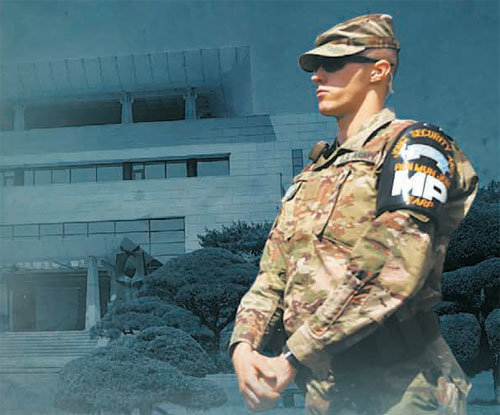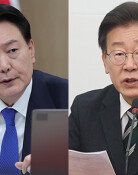Seoul, Washington to launch regular meetings on OPCON transfer
Seoul, Washington to launch regular meetings on OPCON transfer
Posted September. 17, 2019 07:25,
Updated September. 17, 2019 07:25

It has been confirmed that Seoul and Washington have officially embarked upon a discussion on the status and role of the United Nations Command (UNC) after the transfer of wartime operational control (OPCON) is completed. This signals the beginning of a bilateral consultation between the two allies on major issues such as potential disruption or conflicts of command between the future Combined Forces Command (CFC), which will be led by a Korean military official, and the UNC, in the event of emergencies after the OPCON is transferred back to South Korea. It appears that the Moon Jae-in administration is pushing for the completion of OPCON transition in earnest, in a bid to build its military assets around the future CFC within the president’s term (May 2022), following its latest request for an early return of U.S. military bases. With President Moon’s visit to the UN General Assembly in New York scheduled to start on Sunday and a summit meeting with U.S. President Donald Trump in the offing, some opine that this will add one more issue to the much frayed South Korea-U.S. alliance owing to negotiations over the cost-sharing of U.S. soldiers in South Korea and a unilateral end to GSOMIA.
According to a source of USFK on Monday, South Korea and the United States agreed to set in motion a “high-ranking regular consultation body” late last month to discuss the status and role of UNC after the transfer of OPCON is over. The consultative body will take place every Monday starting this month, with the presence of policy director of Korean defense ministry, UNC’s deputy commander in chief (lieutenant general of Canadian military), and as number of working-level officials from both sides. Reportedly, Seoul and Washington will have an in-depth discussion over the purview and the modality for the recognition of UNC’s status and role after the OPCON transfer.
As leader of UNC, the U.S. has augmented the scope and the manpower of the organization since 2014, and it has clarified its intention to play the same robust role to maintain and manage the ceasefire agreement and bring peace to the Korean Peninsula even after the OPCON is handed over to Seoul. In that vein, Washington has gradually increased the share of participation of UNC force providers in joint military exercises between South Korea and the U.S. while reinforcing the manpower of UNC.
Such a move to augment UNC capacities, however, has stoked some suspicion among Korean military officials, who see it as a step for the U.S. to take an effective control over the future CFC, which will be headed by a Korean military official, after Seoul receives the wartime OPCON back. The joint military drill last month designed to verify Seoul’s capability to retake the wartime operational control revealed the two militaries’ different stance on UNC’s ceasefire maintenance mission and UN forces commander’s purview in case of contingencies including a full-blown war, which further fueled the controversy.
“The regular meeting will serve as a chance for an intensive investigation into some potential points of conflict between America’s reinforcement on UNC and the two nations’ military command after the OPCON transfer is completed,” a government source said.
Sang-Ho Yun ysh1005@donga.com







